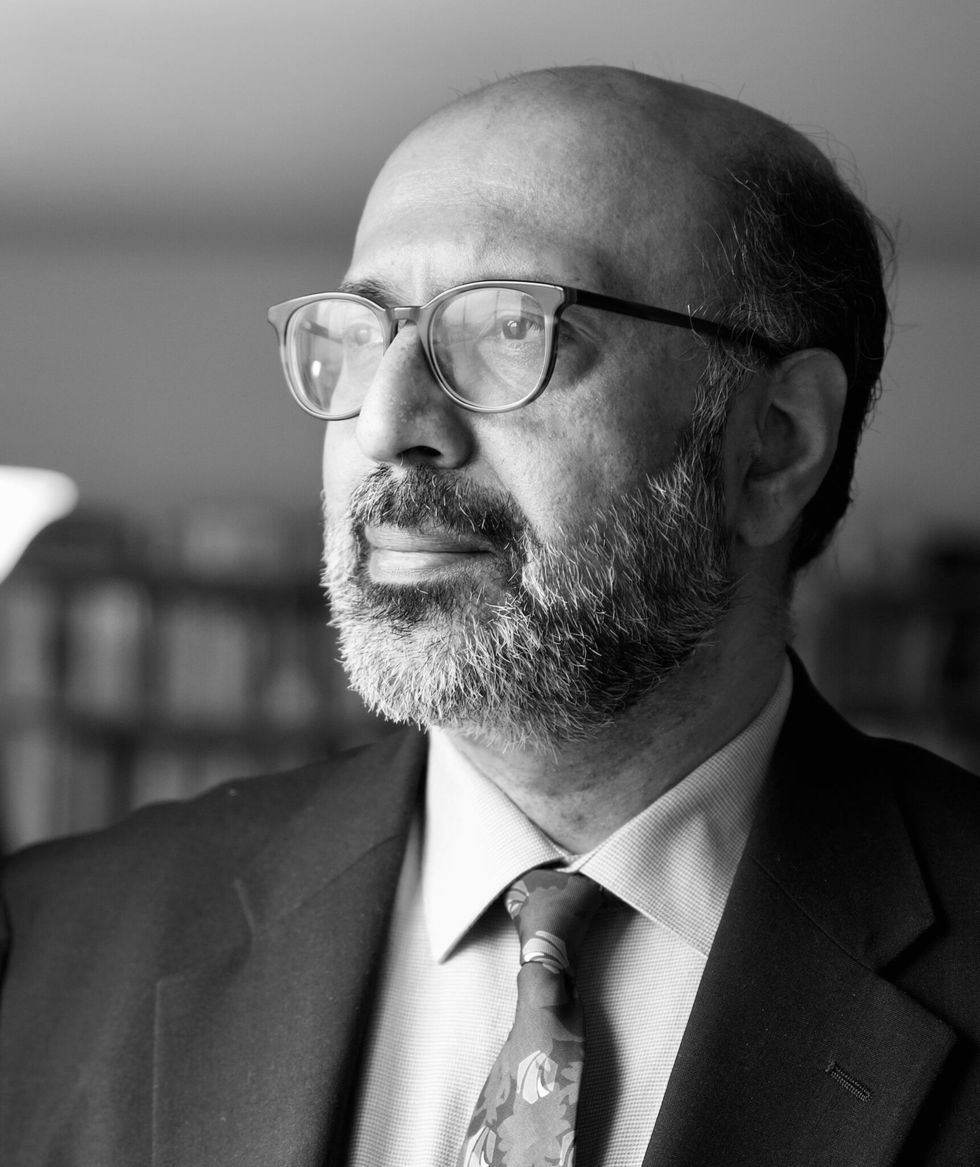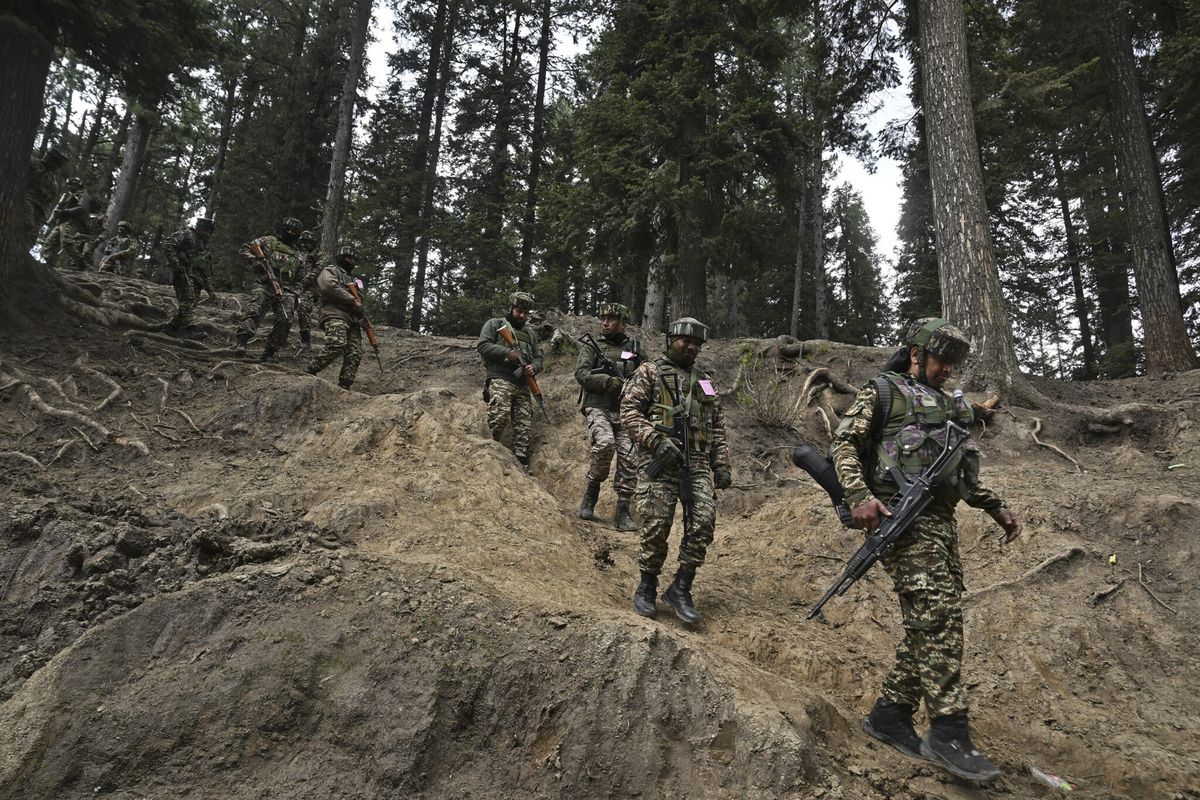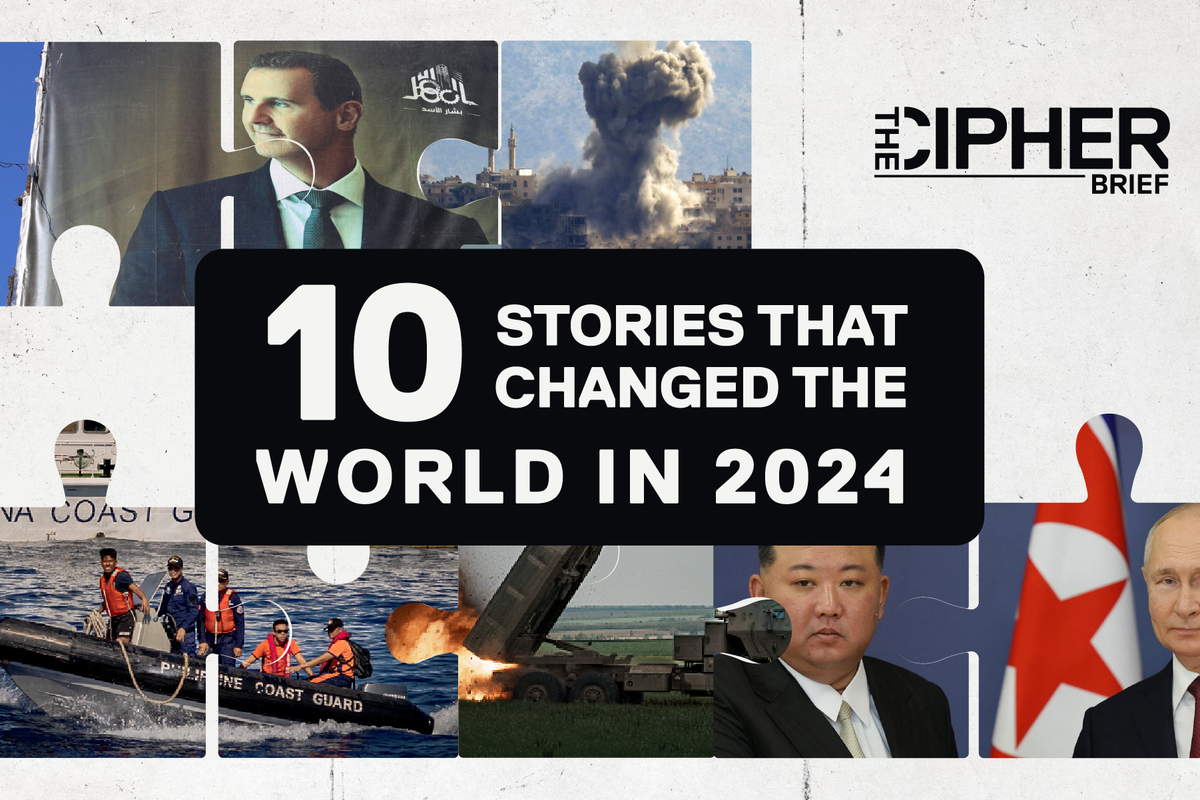SUBSCRIBER+EXCLUSIVE INTERVIEW – It was a stunning result that few saw coming: a clear victory at the polls for Pakistan’s jailed ex-Prime Minister Imran Khan, despite an aggressive campaign by the country’s military to discredit Khan, weaken his party, and - according to many observers - rig the vote.
It’s also a moment of high anxiety and potential danger for a Pakistan, a nuclear-armed nation that was already home to rising extremism and an economic crisis.
In what was described as a “head-spinning upset” and “probably the biggest election upset in Pakistan’s political history”, Khan’s PTI party won 93 seats, beating the party of another former Prime Minister, Nawaz Sharif (75 seats) and the party of Bilawal Bhutto Zardari, son of the late Prime Minister Benazhir Bhutto (54 seats). Khan didn’t just defeat his political rivals; his victory was also a stinging rebuke of the military, which had worked hard to keep him from power.
The results leave Pakistan in what Hassan Abbas, a long-time scholar of Pakistan at the National Defense University, called “a dangerous moment”, with political instability and military-civilian tensions added to a mix that includes heightened extremism and an economic crisis. And as Abbas and others have noted, all those concerns are magnified because Pakistan is also a nuclear-armed nation of great strategic importance to the region and the U.S.
As for Imran Khan himself, he’s still in prison, though that didn’t stop his followers from putting out a “victory speech” that looked and sounded like Khan, but was in fact, an A.I.-generated address. The AI speech was the latest example of another Khan advantage - a young following that knows how to use technology and social media to powerful effect.
What comes next? Technically, Khan is serving multiple sentences that total 34 years - though the charges were widely seen as politically motivated and Pakistan has often seen jailed political figures pardoned and returned to power.
Abbas, in an interview with The Cipher Brief, explained why Khan has captured the hearts of so many Pakistanis, and warned of dangers on multiple fronts in the days and months ahead.
THE CONTEXT
- Imran Khan was a hugely popular cricket star before he turned to politics, founding the Pakistan Tehreek-e-Insaf Party (PTI) in 1996.
- Khan became Prime Minister in 2018, running on a populist and anti-corruption agenda. His PTI became the largest party in the National Assembly, and formed a coalition government with independents.
- In 2022, Khan was ousted from office and charged under anti-terror laws that his supporters claimed were politically motivated.
- In May 2023, Khan was arrested on corruption charges - accusations that were widely disputed. His followers responded by taking to the streets in many parts of the country. Further charges followed, amounting to a 34-year jail sentence.
- In the runup to the February 8 elections, the military led a widespread campaign discrediting his PTI party. The party’s symbol, a cricket bat, was removed from the ballots in advance of the vote.
- In the elections held Thursday, Khan’s PTI party won the most seats but not a majority. PTI leaders have called on their supporters to protest the alleged irregularities.
- Pakistan is a nation of more than 250 million people, suffering the effects of deep debt, high unemployment and plunging levels of foreign investment. It successfully tested a nuclear weapons for the first time in 2000.
The Cipher Brief tapped Hassan Abbas, a Pakistani-American scholar who has studied Pakistan’s security and politics for decades and visited the country several times in the past year, to assess the election results and the dangers that may lie ahead - for Pakistan, the region, and the U.S. This interview has been edited for length and clarity.
Hassan Abbas, Distinguished Professor of International Relations, Near East South Asia Strategic Studies Centre (NESA)
Hassan Abbas is Distinguished Professor of International Relations at the Near East South Asia Strategic Studies Centre (NESA), at the National Defense University in Washington. Earlier he served as professor and department chair at National Defense University’s College of International Security Affairs and as the Distinguished Quaid i Azam Professor at Columbia University. He is the author of The Prophet’s Heir: The Life of Ali ibn Abi Talib and The Return of the Taliban: Afghanistan After the Americans Left.
THE INTERVIEW
The Cipher Brief: Pakistan has known its share of instability in its relatively short history. Help us to understand this moment in terms of instability or risk for the country.
Abbas: It’s a dangerous moment. Pakistan's 75-year history has been a struggle between its democratic polity and the military dictators. The country has had four military rulers, military dictators who ruled Pakistan for almost half the time since the country's independence. And the military tried hard to manipulate this election, to micromanage the situation because they had declared Imran Khan as persona non grata. He's in jail on politically motivated charges. The military was clearly giving a message to Khan that, “Look, you are our product. How come you are standing up to us?” And now Imran Khan has become a symbol of resistance.
The country has had other symbols of this kind of resistance. But what is unprecedented is that the country today is under a debt of about $140 to $150 billion. Inflation is skyrocketing. 60 percent of the Pakistani population is under the age of 29. So you have a lot of young people who are jobless, who have the world in their hands with their phones. Their frustration is very high and they can see what is happening in the world.
It’s also unprecedented in the sense that previously, whenever there were signs that the military wanted to side with one person, by and large politicians and the people would drift towards that idea. Now there's severe resistance, and they're not letting it go. People are going to the courts to fight these manipulated elections. Another thing which is unprecedented is the kind of brute and incompetent way in which the rigging was done. I'm not saying there are good ways to do rigging, but in this case they have left so much evidence of it, that social media is on fire with all the documentation and video clips.
So there is this military-versus-people confrontation, and that may be dangerous.
Finally there is the danger involving the rise of the Taliban, or the return of the Taliban to Kabul (in Afghanistan). They are aligned with the Pakistani Taliban, and we must note that on election day last week there were 61 incidents of terrorism - small in scale, but the rise in extremism and militancy is very high. And we know that militants and extremists, they thrive in situations where there's instability. So that is another very dangerous point, especially for a country which is a nuclear weapon state.
The Cipher Brief: Can you talk a bit about Imran Khan himself? You've followed him for a long time. What is it that has so inspired his followers?
Abbas: Imran Khan was, first, a sports icon, especially after his victory in the Cricket World Cup. And he was an Oxford student, handsome, and whenever he would go to India, there would be all the rumors of him going out with all the top Bollywood actresses. So he was a very popular man in so many different ways. And then he married Jemima Goldsmith, a very wealthy lady who was friends with many well-known figures - among them Princess Diana. She brought Diana to Pakistan.
So Khan was everywhere.
Around 2010, some military generals, including the head of the Pakistani intelligence services, started remarketing Imran Khan, saying he's the only hope, because otherwise we get back to the same two political parties in Pakistan, two big parties led by two major families and Imran Khan was seen as someone who could counter that.
Ultimately, Imran rose to greater power and of course became Prime Minister, but he became, in short, a kind of Frankenstein monster for the military.
His popularity is unprecedented in some ways. Number one, he was able to make a case very effectively that the other political parties are just part of a musical chairs game. They come into power, they're corrupt, their corruption charges are never proven, the other comes in, and on it goes. And the elitism and nepotism is so entrenched, these parties only give chances to their own family members. So Imran Khan said, We need a new social contract.
He was also very popular for one phrase: “Absolutely not.” An American journalist asked him, given some of the terrorism and extremism from Afghanistan, and Iran's involvement, Would you support some American use of military bases? And Imran Khan, in a very firm and controlled way, said, “absolutely not.” And he became popular for this - “Oh, he said ‘absolutely not’ to the Americans.”
He would ask, 'Why does the West manipulate us, Why does the British old elite try to manipulate us, Why do the Americans try to interfere in Pakistani politics?' So, he became a symbol of resistance, not necessarily against the United States, but some of the western policies.
He also took up the cause of Islamophobia. He went to the United Nations and asked, 'Why is the prophet of Islam being projected in cartoons, et cetera?' And he signed up other leaders, Erdogan of Turkey and Mahathir of Malaysia, as allies.
Imran Khan was ideologically very ambitious, and he was trying to become a leader of the Muslim world in a sense. And that was not taken lightly. And the Pakistani military at some point said, Well, he's going too far, because Pakistan's military has been historically aligned with the West, because of their F-16s (warplanes), other Western military equipment, their training manuals, special services and so on. And the military said, OK, he's going too far. That's when the military pulled the rug out from under him.
They went after his party and arrested its members. And when they arrested Imran Khan, there was public outrage. About 20 to 30 major military installations and the symbols of the military were attacked.
Imran Khan's party had almost been dismantled, as the election neared.
The Cipher Brief: How do you think Khan and his party managed to defy the military - and win the vote?
Abbas: His narrative continued to really inspire people. I traveled to Pakistan three times in the last year. And from the cab driver to the person who's organizing the big academic conferences, it seemed everyone was fond of Imran Khan. People within the bureaucracy, even within the military, by and large, there was a wave for Imran Khan.
He has always been saying, 'We need to be independent, we need to be sovereign'. Everyone wants that. You can compare him with the politics of Trump in the United States and the politics of Prime Minister Modi in India. It’s a powerful nationalism. These people have their own very strong constituencies and they know so well how to energize their audience. That's what Imran Khan is.
Despite all these efforts by the military, he was able to win the election because people came out to support him.
The Cipher Brief: Now we have this strange moment where Imran Khan is in prison - and his party has done so well in the elections. What does that mean in terms of the days ahead for Pakistan?
Abbas: His supporters are not going to stay back at home. Pakistan's social media is full of these incidents of irregularities, corruption, military intervening, police intervening, people being attacked, people changing the documentation of the elections.
Imran Khan's people are going to go to the courts in the coming days. For now, they're not going to fight on the streets. They'll fight political battles.
Meanwhile the media is full of these rumors of top generals going to Imran Khan in the jail, trying to cut a deal with him. And Imran is being portrayed as defiant. He's saying, Look, give me my seats.
Mostly we must be concerned about serious political instability alongside such deep economic problems. Pakistan’s stock market is going down and down every day. Pakistan needs constant help from the IMF (International Monetary Fund), but the IMF is not going to deal with a country which cannot come up with a stable political government. So the situation can progressively become very dangerous.
In the coming days, there's little chance of a national reconciliation. Some people are trying to imagine that Imran Khan might surprise everyone and join hands with a third party. But then Imran would lose his political narrative, by joining hands with a party that he has always called corrupt. He is the kind of person who would like to stand alone.
So there'll be more dejection, more frustration, which can lead to more instability. And we know that in public protests things can go out of hand. So you cannot rule out a kind of civil disobedience also at some point.
The Cipher Brief: It's quite a picture you and others have painted of major political instability, economic crisis, extremism and all that layered over a nuclear nation. How dangerous a moment is this?
Abbas: There are two ways to look at it. On the one hand, this continuous effort on the part of Pakistan to go for a democratic path is something which needs to be acknowledged. It’s unlike many Arab states, it's unlike most other Muslim majority states. So this democratic creed which continues to try to pull the country in the direction of democracy deserves to be credited.
But right now, it's also very dangerous. Because it's a country with a large and powerful military, and Pakistan may now face real trouble actually subsidizing that. And with 150 nuclear weapons - remember, it's not like North Korea, which has maybe 15 or 20, or Iran, which might be on the way to becoming a nuclear state. Pakistan is a very well established nuclear weapons state.
The good news is that Pakistan has invested hugely in the infrastructure that is needed to maintain and sustain a large nuclear arsenal. For that reason, the integrity and cohesion of Pakistan's military forces is extremely important. But God forbid, if the military is divided, if there's more instability and if there are deep divisions within.
Normally Pakistan’s military is very organized and disciplined, but you cannot always depend on that in times of crisis and frustration and a coming economic chaos. Pakistan's status as a nuclear weapon state offers it great security vis-a-vis India in some ways, but within the country it has become a liability for Pakistan. Many Pakistani scholars are saying this nuclear weapons state is not making Pakistan secure. It is making Pakistan insecure because they're spending so much on trying to safeguard or secure those nuclear weapons. Pakistan's nuclear command and control system is much better than what was the case with A.Q. Khan (the scientist considered the creator of Pakistan’s nuclear capability). Back then, there was nuclear proliferation from Pakistan to Iran, Libya, North Korea, very established cases. So Pakistan has come far beyond that point, with U.S. help actually, which really helped it in terms of building a security force for its nuclear arsenal.
But at the end of the day, if there's political instability and if there's a civil-military clash, and if the people of the country and the military are standing face-to-face with each other, with mistrust and threatening the other and declaring the other as terrorists, or declaring the other as unpatriotic, that instability for a nuclear weapon state, it can be extremely dangerous.
The Cipher Brief: What are the implications for the U.S.? And for American interests in the region?
Abbas: I am sure this nuclear question is what the American policymakers and security strategists have in mind when they deal with Pakistan. It’s the number one concern. And so they may say, We’ll look the other way when there are human rights issues, or when there is a big crisis. In the American mind of security strategies, it is understandably always, What if this nuclear weapon state goes into a civil war situation?
I have a slightly different view, even as an American and a security strategist myself. Of course the concern from Afghanistan and religious militancy and radicalization and nuclear proliferation are extremely important, but this is also a time for the United States to rethink its global standing and global stature. Whether we like it or not, the whole Israel-Palestine issue is impacting narratives across the Muslim communities across the world. And that is one factor, not the dominant factor in the case of Pakistan at this moment, but it’s one issue, especially across the so-called Global South. The United States is seen by so many countries as always supportive of human rights issues, freedom of speech, and so forth. But as a supporter of democratic values and pluralism and freedom of speech, the United States faces a very critical moment now in terms of its global standing.
And I think there's a huge debate within the administration on how to balance this nuclear threat and danger along with concerns about democracy. In the case of Bangladesh, for example, the United States took a very clear position: the elections are not proceeding in transparent fashion. But when it comes to Pakistan, we have not heard similarly strong statements. The U.S. continues to press the idea of liberty and freedom in the world, and when it makes decisions based on looking the other way because of security concerns, that will hit America’s image, in Pakistan and also globally.
Having said that, make no mistake, Pakistan's security crisis should concern the U.S. national security folks. The United States will have to balance the situation and should not see Imran Khan as the enemy. He’s not totally anti-Western. And he's the most popular guy there. If we want to interact with the Global South, we need at least to be talking to him and to his followers. I don’t think the United States is even talking to Khan’s supporters. There should be a conversation.
Read more expert-driven national security insights, perspective and analysis in The Cipher Brief
Disclaimer: The Cipher Brief may earn a commission from purchases made via links.














